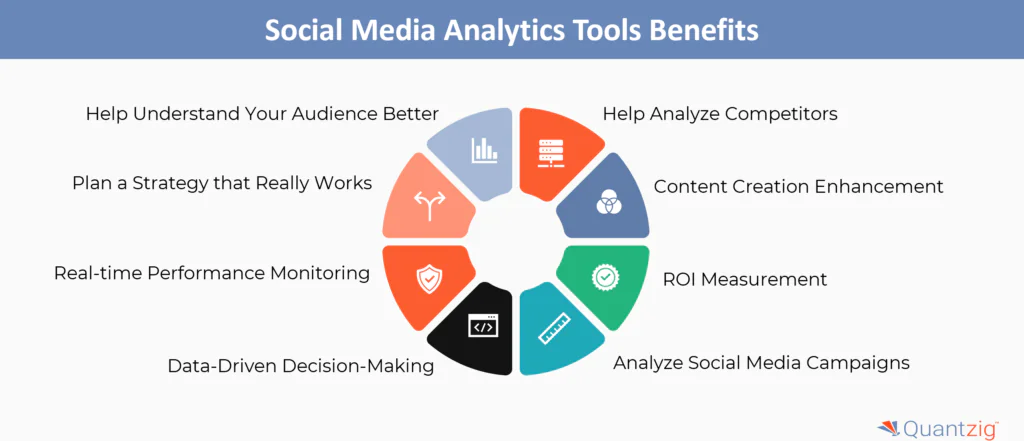Take Full Advantage Of Growth: Just How Analytics Drive Better Approaches
By taking advantage of data understandings, organizations can improve their operational approaches, expect market modifications, and boost consumer involvement. The obstacle lies not just in collecting data yet in efficiently interpreting it to drive tangible outcomes.
Comprehending Information Analytics
Data analytics is a systematic computational evaluation of data that enables companies to reveal purposeful patterns and insights. This process incorporates a selection of strategies, including analytical evaluation, predictive modeling, and information mining, which jointly intend to transform raw information right into actionable info - Analytics. By utilizing these techniques, organizations can make educated choices that are rooted in empirical evidence rather than instinct alone
The foundation of information analytics depends on its capability to handle huge amounts of details from diverse sources. This includes structured information, such as databases, and disorganized information, consisting of social media sites communications and client feedback. Through using specialized software program and tools, experts can extract and refine this information effectively, identifying patterns and relationships that might not be quickly obvious.
Understanding data analytics likewise involves identifying the importance of information high quality and stability. Reliable and precise data is critical for purposeful evaluation; thus, organizations must carry out robust data administration practices. Furthermore, the repetitive nature of analytics enables continuous refinement and improvement of techniques, making certain that organizations remain nimble when faced with transforming market dynamics and customer behavior.
Key Advantages of Analytics

One of the vital advantages of analytics is its capability to supply workable understandings. Organizations can promptly evaluate huge amounts of data, discovering patterns that may not be promptly evident.
One more considerable advantage is boosted client understanding. Analytics devices enable businesses to sector their audience, track customer actions, and individualize advertising and marketing initiatives. This targeted strategy not only improves customer engagement but additionally drives higher conversion rates.

Implementing Analytics Methods
To completely realize the benefits of analytics, organizations should embrace structured methods for implementation. This starts with plainly defining purposes that line up with wider service objectives. By developing certain, quantifiable outcomes, companies can concentrate their analytics efforts on areas that yield the highest roi.
Following, companies should prioritize data administration to guarantee the stability and protection of the information being assessed. This includes establishing procedures for data collection, storage, and gain access to while sticking to appropriate regulations. Ensuring top quality data is important for producing meaningful understandings.
In addition, cultivating a society of data-driven decision-making is crucial. This needs training workers to translate analytics searchings for and motivating partnership throughout divisions. When groups recognize the value of analytics, they are most likely to navigate to this site integrate insights right into their everyday procedures.
Finally, organizations must consistently review and refine their analytics techniques. The landscape of information and technology is consistently evolving, and remaining adaptable will allow companies to take advantage of new tools and methodologies effectively. By executing these organized strategies, organizations can maximize the influence of their analytics efforts and drive lasting growth.
Devices for Reliable Analysis
Reliable analysis relies upon a selection of tools that facilitate the extraction of understandings from information - Analytics. These tools can vary from straightforward spread sheet applications to advanced device finding out systems, each serving a special purpose in the analytical procedure
Data visualization software application, such as Tableau and Power BI, plays an important role in changing complicated datasets into reasonable graphical representations. These tools make it possible for experts to determine patterns and fads quickly, enabling more educated decision-making.
Analytical analysis software, like R and SAS, offers innovative abilities for performing thorough evaluations, consisting of regression, theory testing, and anticipating modeling - Analytics. These attributes empower companies to attract purposeful verdicts from their information, recognizing prospective chances and threats
Furthermore, database monitoring systems such as SQL and NoSQL databases offer the required facilities for keeping and querying huge quantities of data efficiently. They ensure that data is arranged and accessible for evaluation.
Last but not least, organization intelligence platforms incorporate different data sources, supplying a thorough view of business efficiency. By utilizing these tools properly, services can boost their analytical capacities, enabling them to develop methods that optimize development and enhance total efficiency.
Study of Success
Successful companies typically take advantage of information analytics to drive impactful techniques, as evidenced by a number of notable case researches. One prominent example is Netflix, which utilizes innovative algorithms to assess customer choices and habits. By employing these insights, Netflix has actually successfully tailored its material suggestions, resulting in raised individual involvement and customer retention. Their data-driven approach has certainly contributed to their standing as a leading streaming solution.

Furthermore, Starbucks utilizes data analytics to determine optimal shop areas and refine its item offerings. By taking a look at client demographics and acquiring patterns, Starbucks effectively identifies high-potential markets and customizes its menu to neighborhood tastes, driving sales and client loyalty.
These study show that efficient utilization of data analytics can cause tactical advantages, promoting advancement and growth within organizations across different markets.
Final Thought
Finally, the integration of analytics right into business methods dramatically boosts decision-making procedures and promotes sustainable development. By leveraging data-driven understandings, services can determine trends, prepare for market changes, and enhance operations. The reliable application of analytics tools further sustains agility and innovation, enabling companies to browse competitive landscapes with greater precision. Eventually, a commitment to analytics not only drives immediate performance enhancements yet additionally safeguards long-lasting success in an ever-evolving market.
Data analytics is their explanation an organized computational evaluation of data that makes it possible for organizations to uncover purposeful patterns and understandings.Recognizing information analytics additionally includes recognizing the significance of data quality and honesty. Reliable and precise data is critical for significant evaluation; thus, companies must execute robust information governance methods.Following, companies ought to prioritize information administration to make sure the honesty and security of the data being analyzed.Successful companies frequently take advantage of data analytics to drive impactful methods, as shown by several noteworthy case research studies.